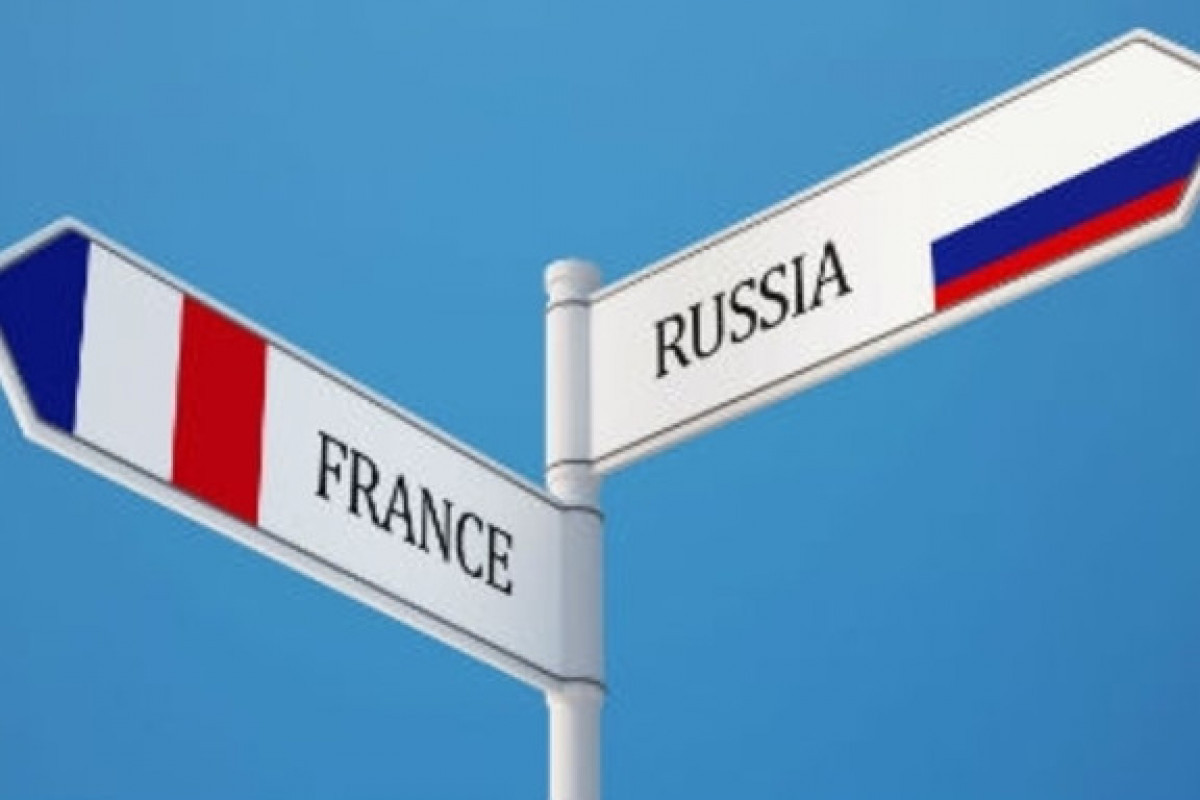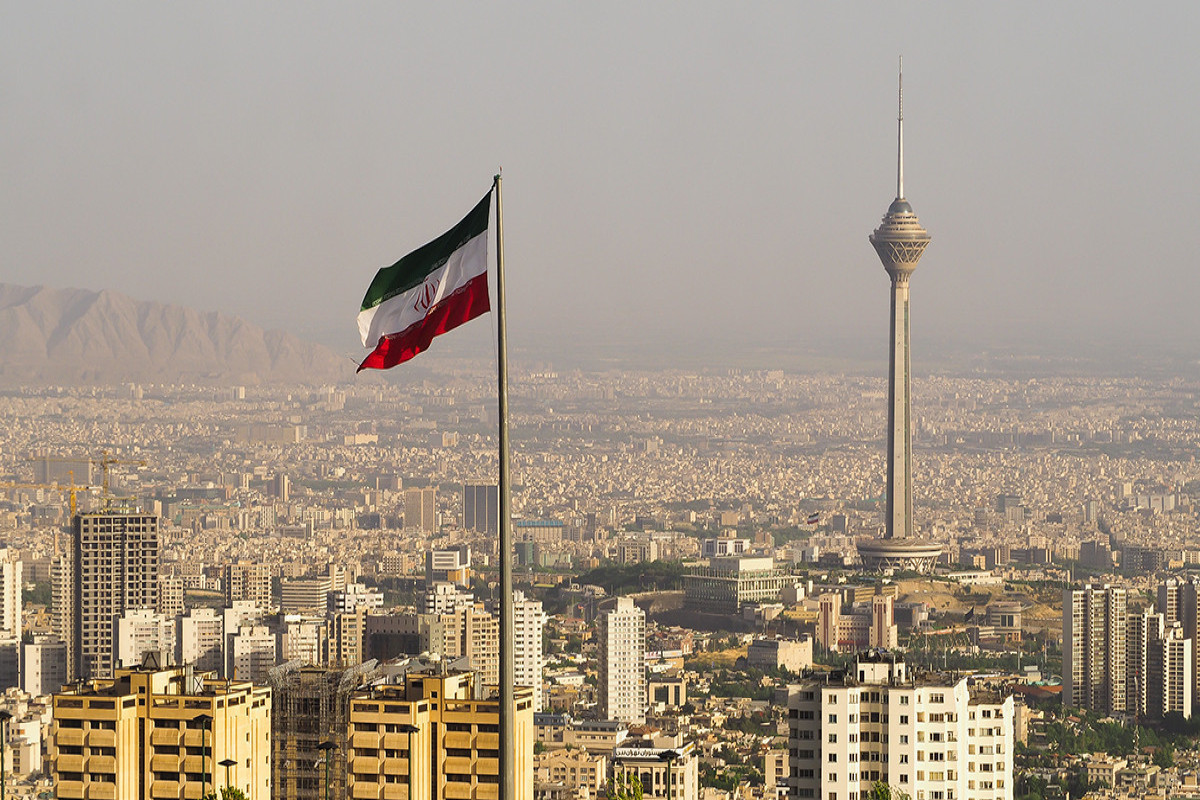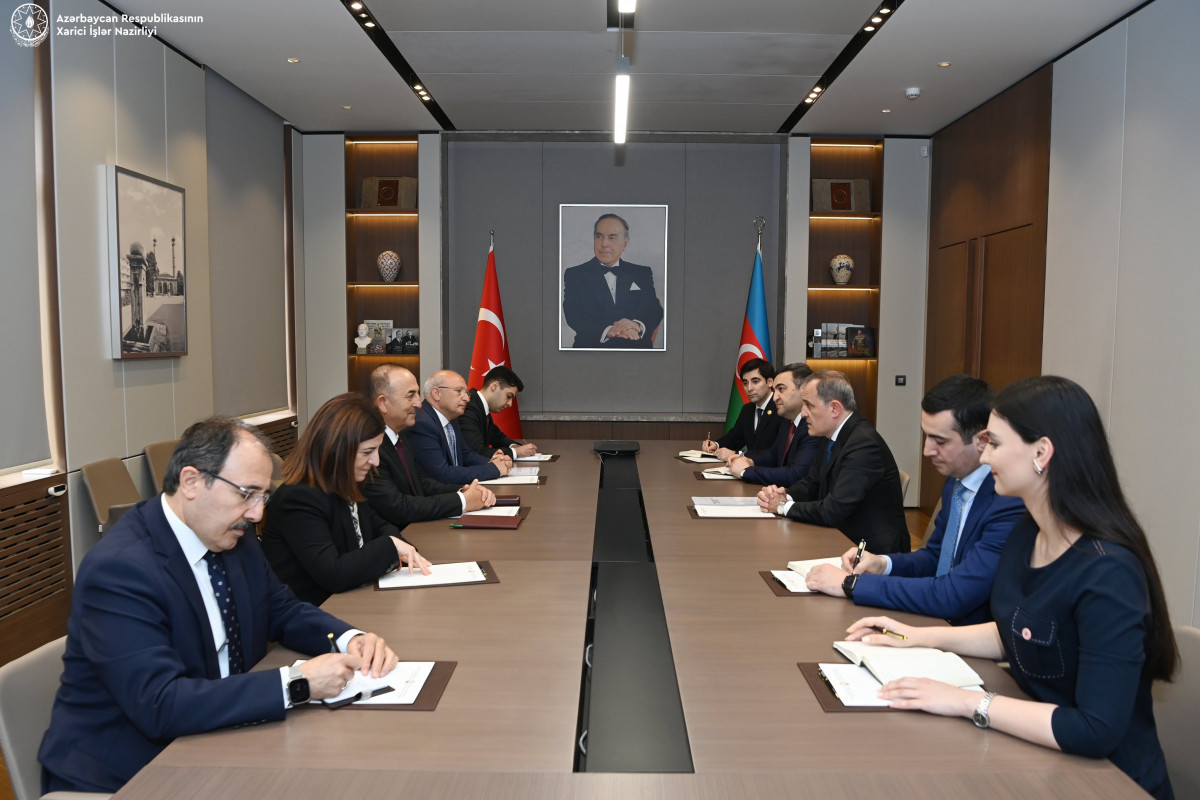World economic crisis and Turkey – ANALYSIS

Istanbul. Mayis Alizadeh–APA. Turkey was deeply shaken by two economic crises over the past 20 years. The crisis of early 1994 resulted with devaluation decision of the Central Bank in April and the government of Tansu Chiler had to announce April 5 economic decisions. The bitter recipe offered to the people led Erbakan’s Welfare Party to win the elections in 1995.
Turkey faced with the second economic crisis on February 19, 2001. Prime Minister Bulent Ecevit left the meeting of National Security Council early and told journalists: “The honorable president threw the Constitution toward me and told me unethical phrasesâ€. The world was shaken in a moment, the bourse fell and night loans jumped to 7200. Despite the hard terms, the government didn’t leave the principles of market economy and after the 10-hour meeting course of foreign currencies controlled with the forward method was replaced by the free course, which resulted with the 100-percent devaluation. The country’s foreign debts rose for 100 per cent in a few moments and the banks needed in the guarantee letter of Treasury to receive loans. International financial institutions were away to give loans to the government and then Bulent Ecevit invited his former adviser, the Vice President of World Bank Kemal Dervish to Ankara and appointed him a State Treasury Minister. As he was not a member of parliament, Kemal Bey had to take oath before the parliament to receive the ministerial status. Kemal Dervish submitted the government’s new economic program to the World Bank and the International Monetary Fund within two months. He considered changing of infrastructure of the country’s banking system fundamentally. His phone conversation before taking the ministerial post interpreted as “Tell Ecevit they failed all the things. There is need in radical measures†showed how difficult the situation was. In June, 2001 when The International Monetary Fund approved terms of credits, Kemal Dervish already started bank reforms in the country and merging of state-run banks with others or privatization of them. The government laid hand on some of the private banks which run into debts to the Treasury and ended collecting of currencies in the market to close the open positions of the banks with unhealthy infrastructure. The course of foreign currencies started to fall. The coalition government successfully carried out the economic program, but coalition member MHP leader Devlet Bahceli shrugged off Ecevit’s warning “We offered bitter recipe to the people and they will revenge. Let’s go to the elections next year†and the government decided to go to the elections on November 3, 2002. AKP, only winner of the elections didn’t leave the Dervish’s program and developed it. State Treasury Minister Ali Babacan worked harmoniously with the president of autonomous Central Bank until March, 2006. The president of the Central Bank retired because end of his terms and Durmush Yilmaz replaced him in this post brought the political disputes as well and it came to pass that the new president of the Central Bank will have his own policy independent from the government.
Merger or privatization of the world banks continued in the reign of AKP and as a result of it there was almost no bank in the country that might burden to budget. AKP governments successfully implemented the programs singed with the International Monetary Fund till the end. The economic program implemented by Erdogan government in close collaboration with international financial organizations resulted in the record increase of the country’s economy in 2004 – for that year it was at the same time the world record.
When the country stepped towards the atmosphere of the parliamentary elections held on July 22, 2007, the government began to take measures that might cause anxiety in terms of the future of economy. Not taking serious the critical remarks on the increase of the deficit, the government reiterated that it could be financed. In order to prevent the increase of the current deficit, the government was both trying to involve money from abroad and was obliged to sell profitable state enterprises. Despite this, deficit of 2007 was announced to be $37 billion and international financial organizations intensified warnings to Ankara. It is not accidental that the architect of the program saving economy from crisis, current head of the UN Development Program Kamal Dervis said a month ago that Turkey had no other way out but to reduce government expenditures and economize. Though the government’s pursuing election economic policy on the eve of July 22 brought extra votes to AKP, this unethical act slowed down investment atmosphere in the country. Foreign funds instead of focusing in direct investments either went to stock exchange or were used in meeting government expenses. Due to the increase of prices as from the beginning of this year Central Bank changed inflation targets determined for the end of the year. Though export figures set a record in the history of Turkey, increasing import became another problem of economy. Turkey met the world economic crisis, which intensified early in September, with high deficit, double inflation and export shortfall. When the crisis intensified and hit New York Stock Exchange, Istanbul stock exchange was not opened, since Turkey celebrated Ramadan holiday, it was felt only on October 3. At first financial support of the US and EU created positive atmosphere in Turkey’s investment market, it could not prevent Istanbul stock exchange from losing two thirds of its value. Foreign exchange rate, which for a long time seemed to be stable, increased by approximately by 45%. Trying to take an opportunity of the world crisis the government submitted a new bill to the parliament and attempted to draw the money of the citizens living abroad to Turkey by all means (even in bags). When the bill was seriously criticized, Prime Minister Erdogan appealed to the citizens living in Europe to bring their money to Turkey. Tayyip Erdogan himself said it was risky, but undertook this risk. Ignoring the anxiety the parliament adopted the law on bringing real money to the country. As a result of the regular discussions held with nongovernmental organizations, Erdogan government, which is closely following the world crisis, is about to sign a new cooperation agreement with the International Monetary Fund. Ten days ago Prime Minister left for New York and met with IMF President. Following the meeting, it was announced that a new agreement would be signed soon.
Recep Tayyip Erdogan saying previously that there will not be any state guarantee on bank savings of citizens during first month of economic crisis promised to ensure a part of bank savings.
Erdogan trying to react to the developments in the country related to economic crisis has sent strict message to banks taking credits back recently.
“How can you take back credits if reason of your creation depends on them? – seriously said. Tayyip called Banking Regulation and Inspection Council to take measures on those banks. Central Bank decreased 1% of interests to impede economic crisis. Erdogan appealed to 1 million 300.000-firm Union of Chambers and Commodity Exchanges of Turkey to employ one person by every firm. Irrespective of measures, increase of expenses continues and Turkey will persuade policy to decrease expenses (current deficit is forecasted to be 50 billion dollars late in 2008).
Turkey had unchangeable principle during economic crisis: It did not refuse main rules of market economy and democracy. There was not anti democratic decisions on rights of players in the market. Bank operations were not prohibited during crisis. Erdogan tried to recover crisis. The reason of it is that Turkish people have never lost their property right. There is not any difficulty than integration from socialism into market economy and it is enough to see it in Russia and post soviet countries.
Turkey faced with the second economic crisis on February 19, 2001. Prime Minister Bulent Ecevit left the meeting of National Security Council early and told journalists: “The honorable president threw the Constitution toward me and told me unethical phrasesâ€. The world was shaken in a moment, the bourse fell and night loans jumped to 7200. Despite the hard terms, the government didn’t leave the principles of market economy and after the 10-hour meeting course of foreign currencies controlled with the forward method was replaced by the free course, which resulted with the 100-percent devaluation. The country’s foreign debts rose for 100 per cent in a few moments and the banks needed in the guarantee letter of Treasury to receive loans. International financial institutions were away to give loans to the government and then Bulent Ecevit invited his former adviser, the Vice President of World Bank Kemal Dervish to Ankara and appointed him a State Treasury Minister. As he was not a member of parliament, Kemal Bey had to take oath before the parliament to receive the ministerial status. Kemal Dervish submitted the government’s new economic program to the World Bank and the International Monetary Fund within two months. He considered changing of infrastructure of the country’s banking system fundamentally. His phone conversation before taking the ministerial post interpreted as “Tell Ecevit they failed all the things. There is need in radical measures†showed how difficult the situation was. In June, 2001 when The International Monetary Fund approved terms of credits, Kemal Dervish already started bank reforms in the country and merging of state-run banks with others or privatization of them. The government laid hand on some of the private banks which run into debts to the Treasury and ended collecting of currencies in the market to close the open positions of the banks with unhealthy infrastructure. The course of foreign currencies started to fall. The coalition government successfully carried out the economic program, but coalition member MHP leader Devlet Bahceli shrugged off Ecevit’s warning “We offered bitter recipe to the people and they will revenge. Let’s go to the elections next year†and the government decided to go to the elections on November 3, 2002. AKP, only winner of the elections didn’t leave the Dervish’s program and developed it. State Treasury Minister Ali Babacan worked harmoniously with the president of autonomous Central Bank until March, 2006. The president of the Central Bank retired because end of his terms and Durmush Yilmaz replaced him in this post brought the political disputes as well and it came to pass that the new president of the Central Bank will have his own policy independent from the government.
Merger or privatization of the world banks continued in the reign of AKP and as a result of it there was almost no bank in the country that might burden to budget. AKP governments successfully implemented the programs singed with the International Monetary Fund till the end. The economic program implemented by Erdogan government in close collaboration with international financial organizations resulted in the record increase of the country’s economy in 2004 – for that year it was at the same time the world record.
When the country stepped towards the atmosphere of the parliamentary elections held on July 22, 2007, the government began to take measures that might cause anxiety in terms of the future of economy. Not taking serious the critical remarks on the increase of the deficit, the government reiterated that it could be financed. In order to prevent the increase of the current deficit, the government was both trying to involve money from abroad and was obliged to sell profitable state enterprises. Despite this, deficit of 2007 was announced to be $37 billion and international financial organizations intensified warnings to Ankara. It is not accidental that the architect of the program saving economy from crisis, current head of the UN Development Program Kamal Dervis said a month ago that Turkey had no other way out but to reduce government expenditures and economize. Though the government’s pursuing election economic policy on the eve of July 22 brought extra votes to AKP, this unethical act slowed down investment atmosphere in the country. Foreign funds instead of focusing in direct investments either went to stock exchange or were used in meeting government expenses. Due to the increase of prices as from the beginning of this year Central Bank changed inflation targets determined for the end of the year. Though export figures set a record in the history of Turkey, increasing import became another problem of economy. Turkey met the world economic crisis, which intensified early in September, with high deficit, double inflation and export shortfall. When the crisis intensified and hit New York Stock Exchange, Istanbul stock exchange was not opened, since Turkey celebrated Ramadan holiday, it was felt only on October 3. At first financial support of the US and EU created positive atmosphere in Turkey’s investment market, it could not prevent Istanbul stock exchange from losing two thirds of its value. Foreign exchange rate, which for a long time seemed to be stable, increased by approximately by 45%. Trying to take an opportunity of the world crisis the government submitted a new bill to the parliament and attempted to draw the money of the citizens living abroad to Turkey by all means (even in bags). When the bill was seriously criticized, Prime Minister Erdogan appealed to the citizens living in Europe to bring their money to Turkey. Tayyip Erdogan himself said it was risky, but undertook this risk. Ignoring the anxiety the parliament adopted the law on bringing real money to the country. As a result of the regular discussions held with nongovernmental organizations, Erdogan government, which is closely following the world crisis, is about to sign a new cooperation agreement with the International Monetary Fund. Ten days ago Prime Minister left for New York and met with IMF President. Following the meeting, it was announced that a new agreement would be signed soon.
Recep Tayyip Erdogan saying previously that there will not be any state guarantee on bank savings of citizens during first month of economic crisis promised to ensure a part of bank savings.
Erdogan trying to react to the developments in the country related to economic crisis has sent strict message to banks taking credits back recently.
“How can you take back credits if reason of your creation depends on them? – seriously said. Tayyip called Banking Regulation and Inspection Council to take measures on those banks. Central Bank decreased 1% of interests to impede economic crisis. Erdogan appealed to 1 million 300.000-firm Union of Chambers and Commodity Exchanges of Turkey to employ one person by every firm. Irrespective of measures, increase of expenses continues and Turkey will persuade policy to decrease expenses (current deficit is forecasted to be 50 billion dollars late in 2008).
Turkey had unchangeable principle during economic crisis: It did not refuse main rules of market economy and democracy. There was not anti democratic decisions on rights of players in the market. Bank operations were not prohibited during crisis. Erdogan tried to recover crisis. The reason of it is that Turkish people have never lost their property right. There is not any difficulty than integration from socialism into market economy and it is enough to see it in Russia and post soviet countries.
Political
 ANALYSIS'>
ANALYSIS'>
France-Russia confrontation is escalating openly: Paris turns into Moscow's main geopolitical rival-ANALYSIS

Endless games of ICRC: Time comes for organization to leave Azerbaijan -ANALYTICS

Iranian plane transporting weapons to Armenia: Tehran has nothing to say in the face of the truth?


